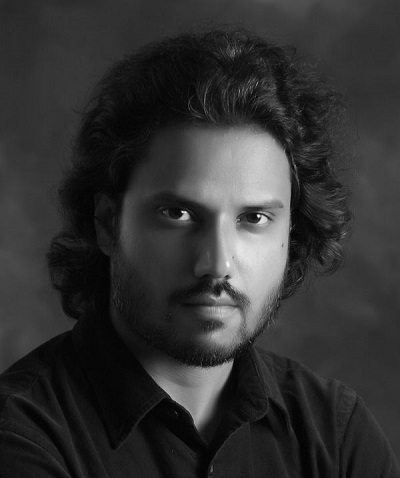New Delhi, (Samajweekly) He may have cracked the prestigious BITS entrance but during his time there, what interested him more was writing plays and sketching. He soon realised, not Thermodynamics but looking inside people’s minds interested him. And that is when he decided to do an animation course in Singapore next.
Filmmaker Ishan Shukla, whose dystopian sci-fi animation film ‘Schirkoa: In Lies We Trust’, which will have its world premiere at the prestigious 53rd International Film Festival of Rotterdam (IFFR) smiles, “Well, it may sound all cool now, but believe me, I was really worried that time — what if I don’t get a job after the animation course? Of course, I don’t generally admit that,” he tells IANS.
While he did get a job in Singapore, in less than a year it started getting boring for him.
“In this sea of monotony, I started sketching in my diary and I replaced all the people with a box on their heads. The boxes not only conveyed emotions but also became tools of social and political commentary. It felt like I could make a story and create it into something around what was going on in the world as well. In a way, the film was conceived back in 2010.”
Based on his award-winning short with the same name, ‘Schirkoa’, which played at 120 plus international film festivals and won 33 awards, including Best Animated Short award at the LA Shorts Festival and was longlisted for the Academy Awards, this 103-minute film features principal voices of international film personalities such as Golshifteh Farahani, Asia Argento, SoKo, King Khan And The Shrines, Denzil Smith, John Sutton and introducing Tibu Fortes and Shahbaz Sarwar and guest star voices of Lav Diaz, Karan Johar, Shekhar Kapur, Anurag Kashyap, Piyush Mishra and auteur filmmaker Gasper Noe.
The film’s soundtrack is composed by the acclaimed Sneha Khanwalkar, who has created iconic compositions for films like ‘Gangs of Wasseypur’ and ‘Oye Lucky Lucky Oye’.
In a sophisticated perfect society named ‘Schirkoa’, citizens live with paper bags on their heads to dissolve differences. Tensions rise when the whispers of a mythical land without the bags start to float and a fresh council member sparks an accidental revolution.
One of the rare animator filmmakers to make it to such a prestigious festival, Shukla hopes more Indian animators come forward, “When my short film qualified for the Oscars nominations shortlist, there was a lot of chatter. Many youngsters got in touch. But many of them are now in regular jobs. I wish talented people would keep at it and not get scared by a few years of grind.”
While children are the major earners for animation movies, in places like Japan, France and South Korea it is doing well in other demographies as well.
“I am sure animation will catch up with adults in India too, we are slowly seeing that happen. For me, it has always been an adult medium. I tend to see the world through an absurdist lens: for me, animation provocatively amalgamates absurdity and fantasy while still keeping the visual poetry and human moments intact,” says the filmmaker, who has been sketching since childhood, and has done consistent theatre in Bhopal.
Talking about the current state of animation in India, he feels that the major reason many people stay away is the lack of people willing to think from the ground up.
Adding that it is tough to find those who can take an idea to an empty piece of paper, he adds, “I have grown up seeing my father act in theatre and my mother write. And economic value is not there when you see animation filmmaking as a career in India. You can’t earn much and even the biggest studios are not making money. But we must come out of the shell and start taking calculated risks.”
Talk to him about the funding journey of ‘Schirkoa’ and he remembers that part to be nothing less than “blood-sucking”. Most people were interested in animation that catered to children. While some found his idea fascinating, no one was willing to take a risk.
“And then I found my French and German colleagues. They knew exactly what I was trying to achieve. In the last stage, people in India made it possible even though they had not done it before,” concludes the filmmaker, who is next going to direct a science fiction and create a video game based on that.









